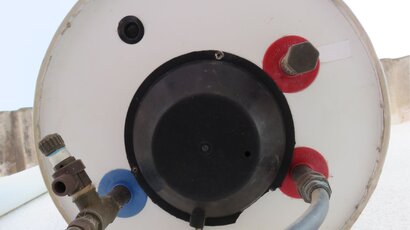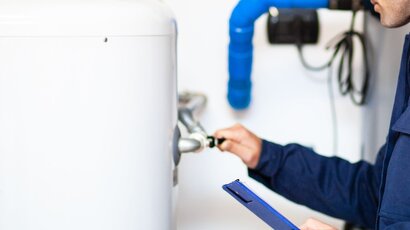The Lifespan of Electric Hot Water Systems
Electric hot water systems have a limited lifespan, influenced by usage, maintenance, and quality. Discover how long they last and when to consider upgrading.
Electric hot water systems are vital to Australian homes, offering a steady stream of hot water for everyday tasks. Their lifespan, however, largely depends on regular upkeep. Knowing how long these systems typically last helps homeowners plan for both repairs and replacements with confidence.
We’re going to explore some handy tips and maintenance strategies that can boost the longevity of your hot water system. By following these, you’ll get the most bang for your buck and enjoy a constant supply of hot water. So, let’s dive into some expert advice to keep your system in top-notch shape.
The lifespan of electric hot water systems hinges on a few key aspects that affect how well they perform and last. Grasping these factors can help you stretch the life of your system, ensuring you get the best return from your important investment.

The quality of your electric hot water system significantly influences its longevity. Systems made with high-quality materials, like enamel-lined tanks and corrosion-resistant parts, tend to last much longer.
Premium brands often provide reliable hot water for a longer period due to superior manufacturing standards. A hot water system warranty typically reflects the confidence manufacturers have in their product’s life expectancy.
Proper installation by a licensed plumber is an essential factor in ensuring the optimal performance of water systems. Poorly installed electric hot water systems or heat pump hot water systems can lead to issues like tank corrosion, heat loss, and system failure. Proper installation also reduces energy consumption and ensures heating elements and storage tanks function efficiently.
Water quality is a significant factor affecting a hot water system’s lifespan. Hard water, with its high mineral content, leads to sludge accumulating in storage tanks and tank corrosion.
This causes wear on the system’s components, including the anode rod and heating elements. Proper maintenance, such as flushing the hot water tank, is vital in managing water quality issues.
Usage patterns directly affect how long hot water systems last. Systems in large households that heat water frequently experience more strain and wear compared to those in smaller homes. Pump hot water systems and electric systems may face greater challenges due to higher demand.
External conditions also impact the durability of storage hot water systems. For example, homes in coastal areas face higher risks of tank corrosion due to salty air. Gas and electric systems exposed to harsh environmental factors may require timely repairs or replacement sooner.
Regular maintenance is critical to extending the average lifespan of hot water heaters. Activities such as checking the anode rod, preventing sludge from accumulating, and addressing a broken heating element or leaking hot water system are crucial. Gas burner systems, electric counterparts, and even solar hot water systems need proper care to provide reliable hot water for a few more years. Relying on local hot water experts ensures your system remains energy efficient and performs at its best.
Recognising the warning signs of a failing electric hot water system is essential for avoiding unexpected breakdowns. Here are key factors to watch for that may indicate repairs or a replacement is needed.

Fluctuating temperatures from hot water systems often signal internal issues, such as a broken heating element or a failing thermostat. This problem affects how much hot water the system can produce and impacts energy efficiency.
Discoloured water coming from your hot water tank can indicate tank corrosion or sediment buildup, particularly in storage hot water systems. Hard water accelerates this issue, requiring careful consideration of water quality and regular maintenance, such as flushing the water tank.
Rumbling, popping, or hissing noises in electric or heat pump hot water systems often result from sediment accumulating in the storage tank. This sediment interferes with heating efficiency, leading to increased energy consumption.
Pooling water near your water tank suggests a leaking hot water system, which could mean structural damage to the storage tank. Immediate attention is required, as this issue impacts the hot water system’s lifespan and reliability.
A drop in water pressure in water heaters and gas hot water systems can be caused by sediment clogging pipes or the tank. Poor water pressure reduces how much hot water is delivered efficiently.
If your hot water heater is over 10 years old, it may be nearing the end of its average lifespan. Older systems, including solar hot water and gas systems, often require replacement due to wear on components like the anode rod. Investing in a new hot water system or solar panels can improve energy efficiency and ensure reliable hot water for years to come.
When deciding between repairing or replacing your electric hot water system, it’s important to evaluate the issue and the system’s lifespan. Here’s a guide to help you choose the best option.
Minor issues with hot water systems, such as a broken heating element, faulty thermostat, or leaking valve, can often be repaired cost-effectively. These repairs are suitable when the storage tank and water quality remain in good condition, ensuring reliable hot water without the expense of a new hot water system.
If your hot water heater has constant leaks, major tank damage, or regular breakdowns, replacing it might be the wiser option. Older storage systems, especially those approaching 10-12 years, often lose efficiency and can become pricey to maintain. Investing in a new system, like a heat pump or solar model, brings the benefit of improved technology and energy savings.
Repairing water heaters is typically more affordable than replacing them. However, repeated repairs on an ageing water tank can outweigh the initial cost of a new system. Replacing your leaking hot water system with a modern, energy-efficient model provides long-term savings by reducing energy consumption.
Newer systems, including gas hot water systems and solar systems, are designed with energy efficiency in mind. Adding features like solar panels or using high-quality materials in your water systems can significantly reduce energy consumption while ensuring that the amount of hot water your household needs is consistently available.
Proper care of electric hot water systems ensures they last longer while maintaining energy efficiency. These tips will help you extend your system’s lifespan and maximise its value.

Scheduling regular maintenance with a licensed plumber is an essential factor in detecting potential problems early. Routine inspections of water systems help address minor issues before they cause serious damage to your hot water tank or heating elements.
Storage hot water systems and gas systems accumulate sediment over time, especially in areas with hard water. Flushing the tank annually prevents sludge from building up, reducing corrosion and improving energy efficiency.
The anode rod in hot water heaters protects the tank from rusting. Replacing it every 3-5 years ensures the tank’s structural integrity and prolongs the system’s lifespan. This is particularly important for storage tank systems exposed to varying water quality.
Set the thermostat to an optimal temperature to reduce strain on heating elements. This helps maintain how much hot water the system produces efficiently, lowering energy consumption.
Adding insulation to your water tank and pipes minimises heat loss, reducing wear on the system. This is particularly useful for storage hot water systems, solar hot water systems, and heat pump hot water systems.
Monitoring usage patterns is a key factor in prolonging a hot water system’s lifespan. Avoid overloading the system by staggering water use during peak times, ensuring reliable hot water while reducing unnecessary wear and tear.
By following these steps, you can get the most value out of your electric hot water system while keeping energy consumption in check.
Selecting the ideal electric hot water system requires careful consideration of your household’s needs and long-term efficiency. Here are key factors to guide your decision.
Choosing the right tank size depends on your household size and water usage patterns. For smaller homes, a compact hot water tank is sufficient, while larger families require higher-capacity storage hot water systems to ensure reliable hot water for daily needs.
Opt for electric hot water systems with high energy efficiency ratings. These systems consume less energy, reducing utility bills and environmental impact over time. Heat pump hot water systems and solar hot water systems are excellent choices for energy-conscious households.
A hot water system’s warranty is a significant factor in assessing its quality. Longer warranties indicate the manufacturer’s confidence in the system’s durability, ensuring peace of mind and long-term protection.
Research brands known for reliable hot water systems. Trusted manufacturers offer high-quality materials, such as enamel-lined tanks and durable heating elements, which enhance the system’s lifespan.
Hiring licensed plumbers, such as WP Plumbing, for professional installation is essential. Proper installation not only ensures optimal system performance but also protects the warranty and reduces the risk of tank corrosion or leaks.
When it comes to electric hot water systems, WP Plumbing is your go-to expert for installation, repairs, and maintenance across Melbourne and surrounding areas.
WP Plumbing specialises in providing reliable hot water solutions tailored to your needs. Using trusted brands and advanced techniques, their licensed team ensures every hot water system represents durability, energy efficiency, and exceptional performance. Whether you need a new hot water system or assistance with an existing one, their commitment to quality guarantees customer satisfaction.
Don’t wait for issues like a leaking hot water system or broken heating element to disrupt your daily life. Contact WP Plumbing today for professional advice and services that deliver lasting results. Let their expertise help you enjoy reliable, energy-efficient hot water systems you can count on.
Electric hot water systems are popular in homes, but are they safe? Learn about safety features, possible risks, and tips for proper use to ensure peace of mind.
Electric hot water systems are gaining popularity for their efficiency and sustainability. Explore the advantages they offer over traditional gas systems.
Regular maintenance keeps electric hot water systems running smoothly and prevents costly issues. Follow these annual tips to enhance performance and durability.


